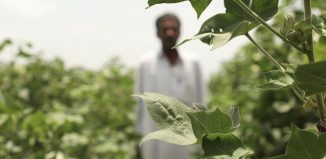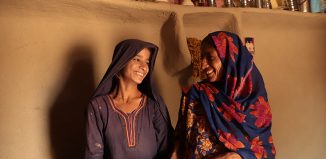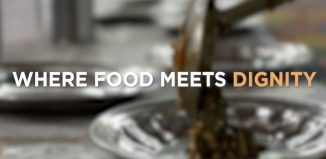Women's economic empowerment
We work with women in impoverished, marginalized communities to develop their skills, confidence, and resources to increase their household income and become decision-makers within their homes and communities. From leadership skills to marketable skills such as developing handicrafts and other products, women as individuals and as community groups take ownership over their lives. We also link the communities with fashion houses and the high-end markets in urban areas to provide the women an opportunity to gain access to larger markets and higher profits. The aim of women’s economic empowerment initiatives is to strengthen their socio-economic status while improving their access to education, healthcare, and food security and overcoming the root causes of poverty.
Food security
- Our food security projects work to improve the availability, access, and utilization of food in agrarian communities. Depending on the community’s needs and preferences, these initiatives may include the distribution of agricultural inputs through voucher schemes, infrastructure repair through cash-for-work or food-for-work, the distribution of livestock, the provision of veterinary services, and the establishment of nurseries, orchards, and seed banks. Recognizing that quantity and quality of food are important, relevant training is also incorporated such as integrated crop management, livestock management, and kitchen gardening. By improving agricultural practices, the communities are better able to utilize their resources to increase the quantity and quality of food, resulting in increased income, food security, and nutrition.
- Daily wage laborers and people without landownership earn cash by participating in activities such as irrigation system improvement and roadway repairs. The participating individuals gain immediate access to food and other basic necessities for their families. These activities help develop poverty-stricken and/or disaster-affected areas in ways that support sustainability and resilience in agrarian communities. For example, improved irrigation systems and roadways help farmers to increase crop yield and decrease the costs and time used to transport goods to markets.
- Other groups such as households led by persons with disabilities (PWDs) or women without sources of income receive cash grants to establish small enterprises. The establishment of local enterprises such as small grocery stores and tailoring businesses result in income for the business owner which can be used to meet their family’s food and other needs. These businesses also contribute to development within their communities, often bringing goods and services to the residents which they previously had to travel longer distances to purchase.
Vocational training
We initially began a construction trade training program for Afghan refugees and their hosts in Pakistan in order to improve their income earning opportunities through certified skilled trades such as masonry, plumbing, welding, electrical works, and carpentry. The aim was to also support reconstruction and employment when they repatriated to Afghanistan. Later, the project was replicated for disaster-affected Pakistani communities to support livelihoods restoration and safer housing reconstruction and also for women from the Afghan community in skills including stitching and embroidery. Tool kits for the respective trades, market linkages, and job placement are additional components which help the participants to increase their income after completing their course.
Livelihoods
In 2016, Nangar of Mallay ji Bhit died of tuberculosis of the lungs. In his final weeks, he was also haemorrhaging violently...
At Community World Service Asia, school meals go beyond filling plates; they nurture growth, learning, and well-being. As Sphere’s Regional Partner in...














